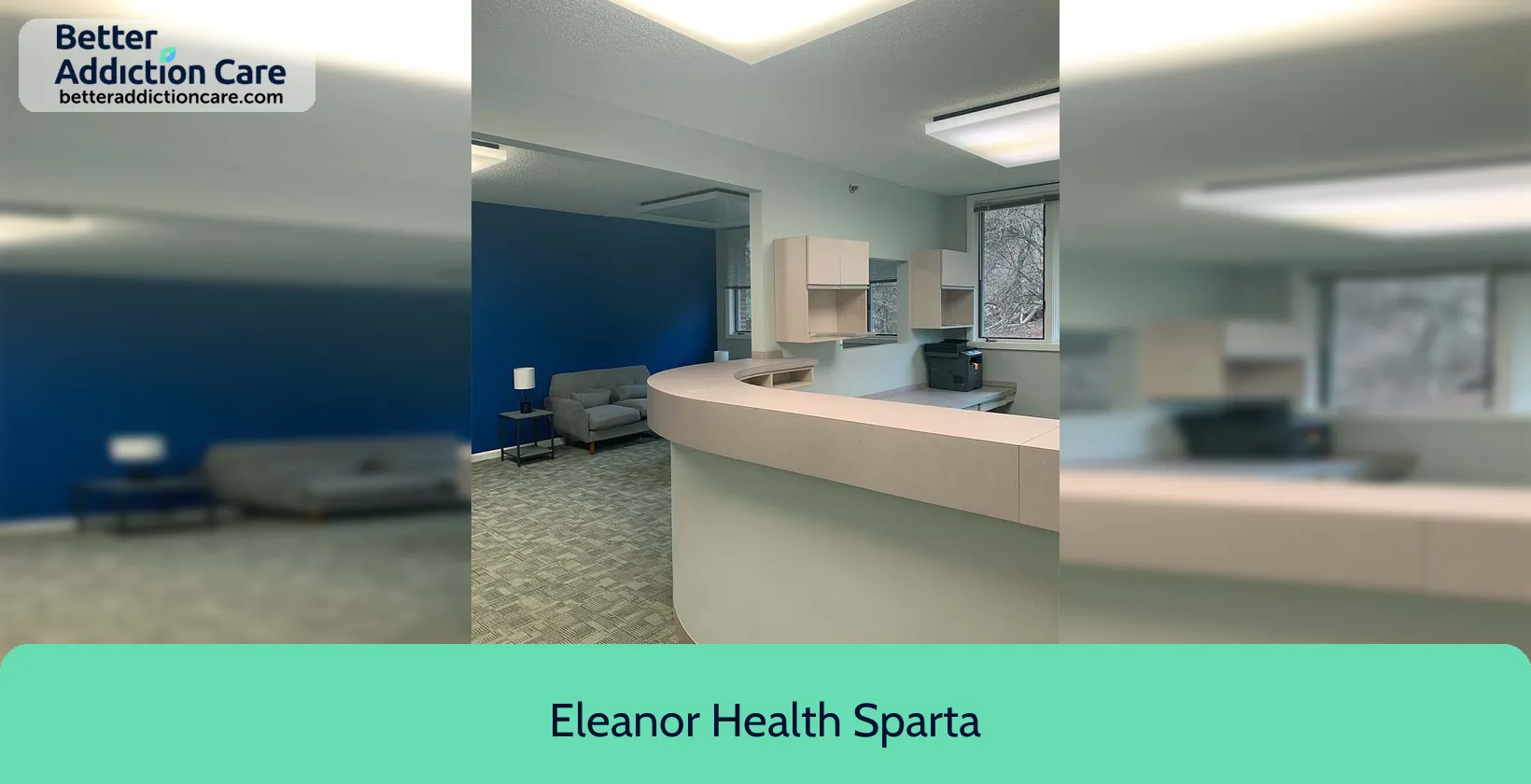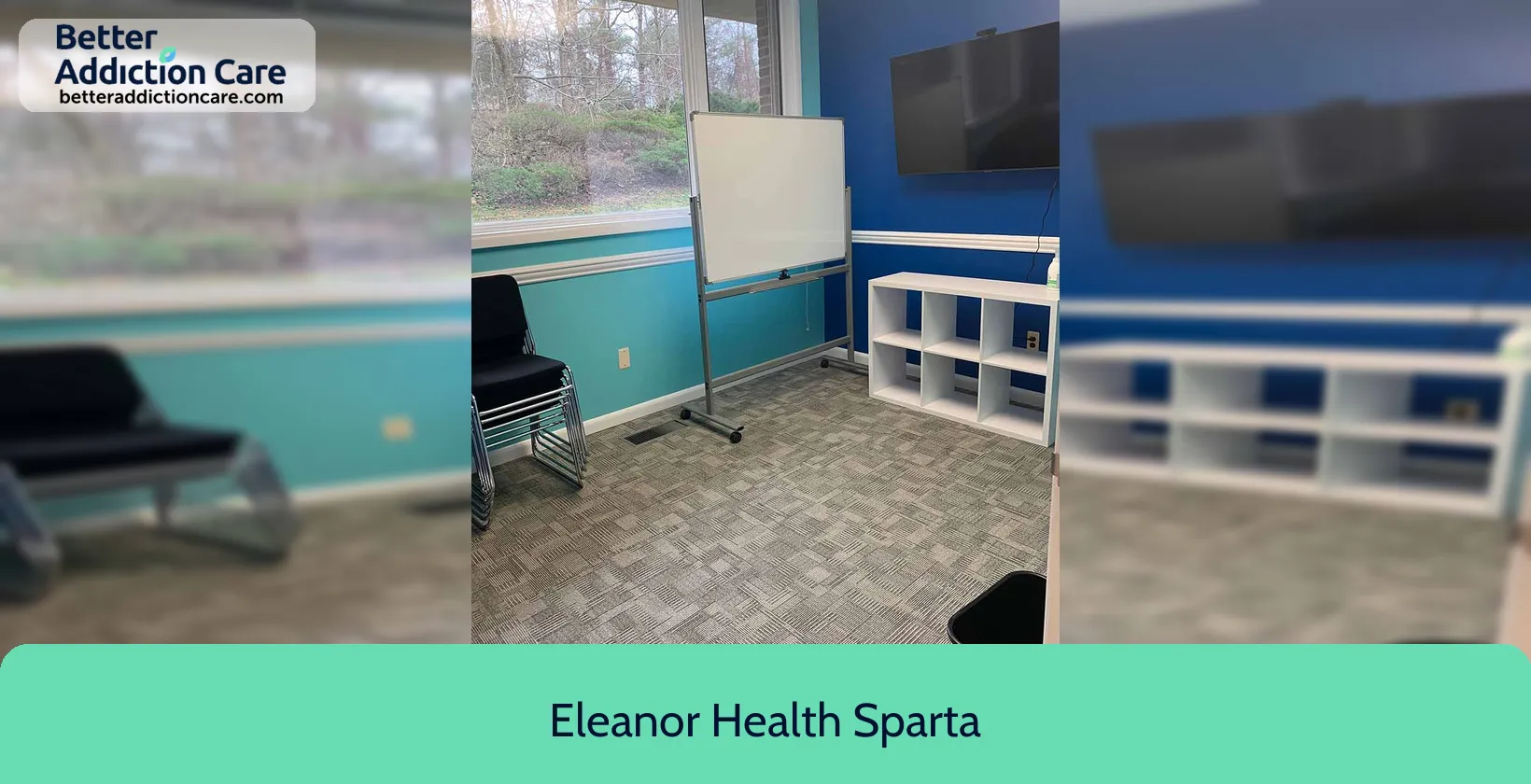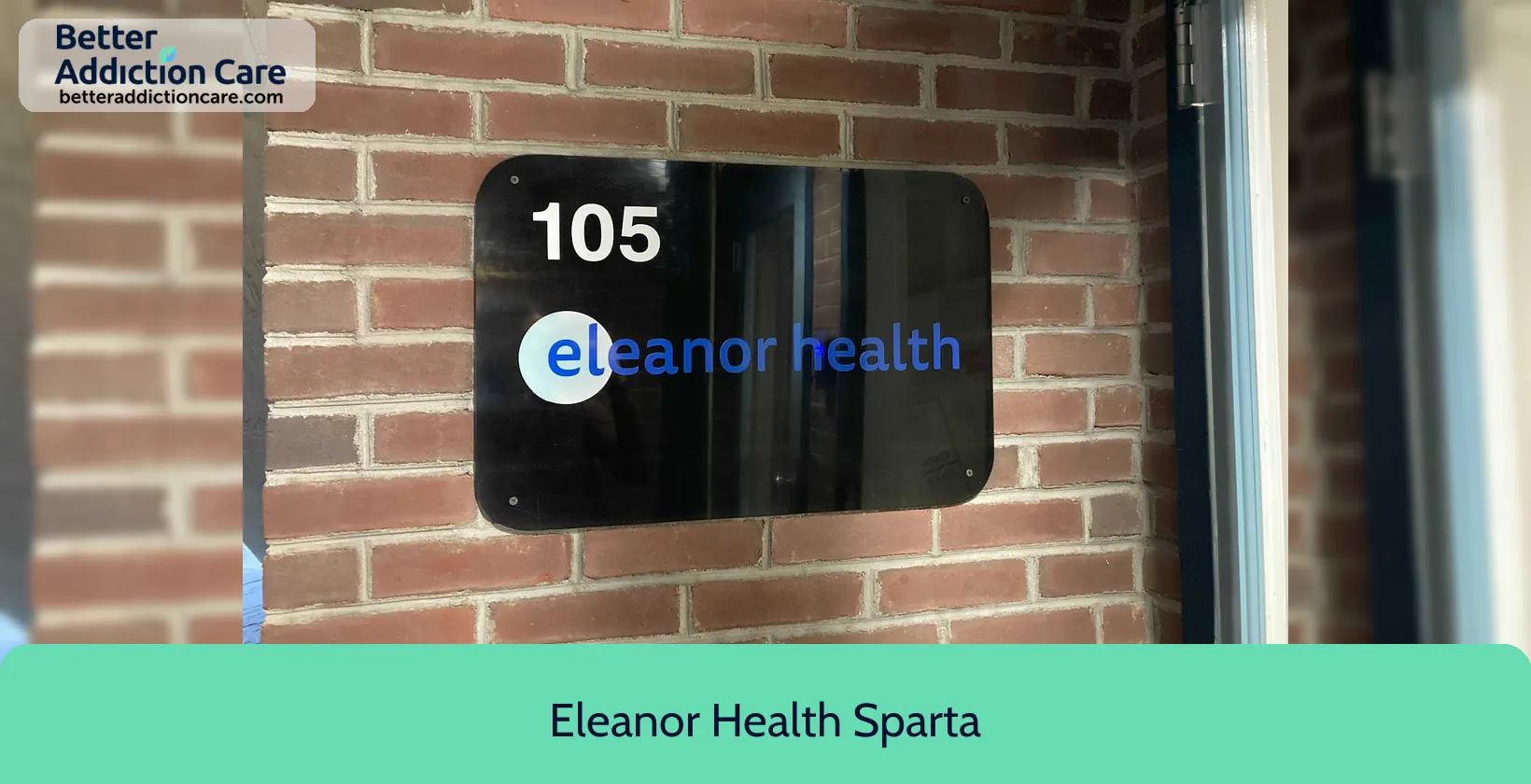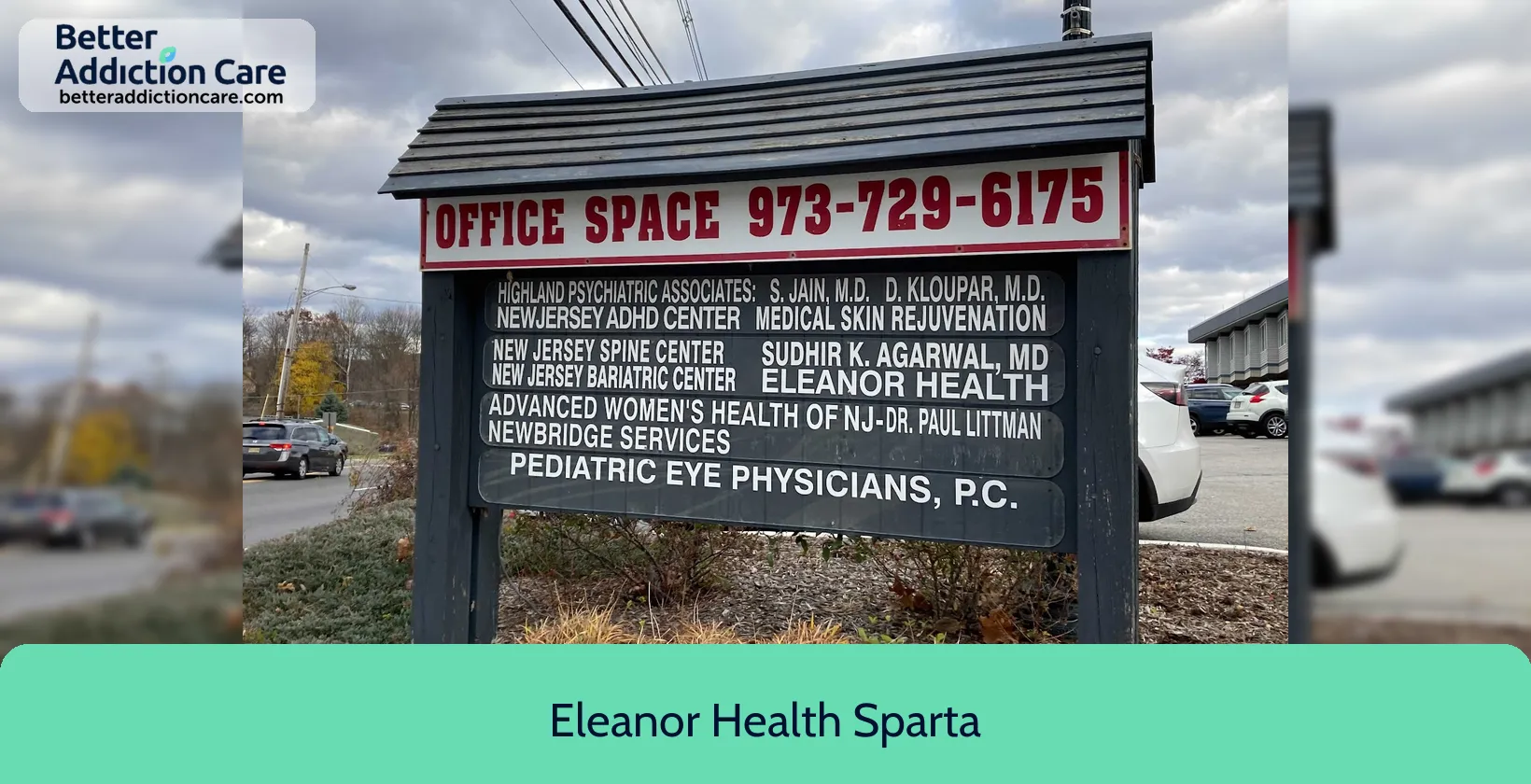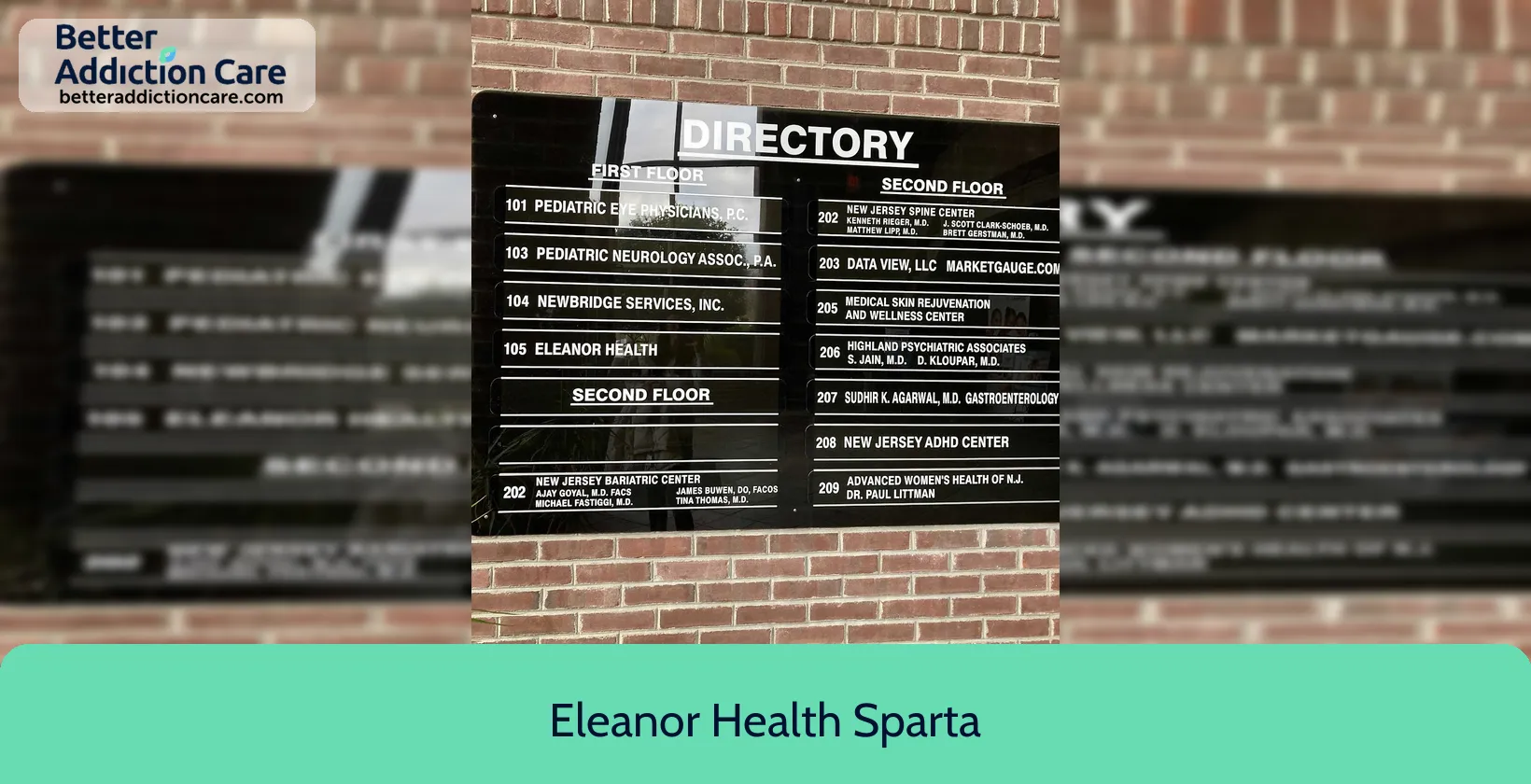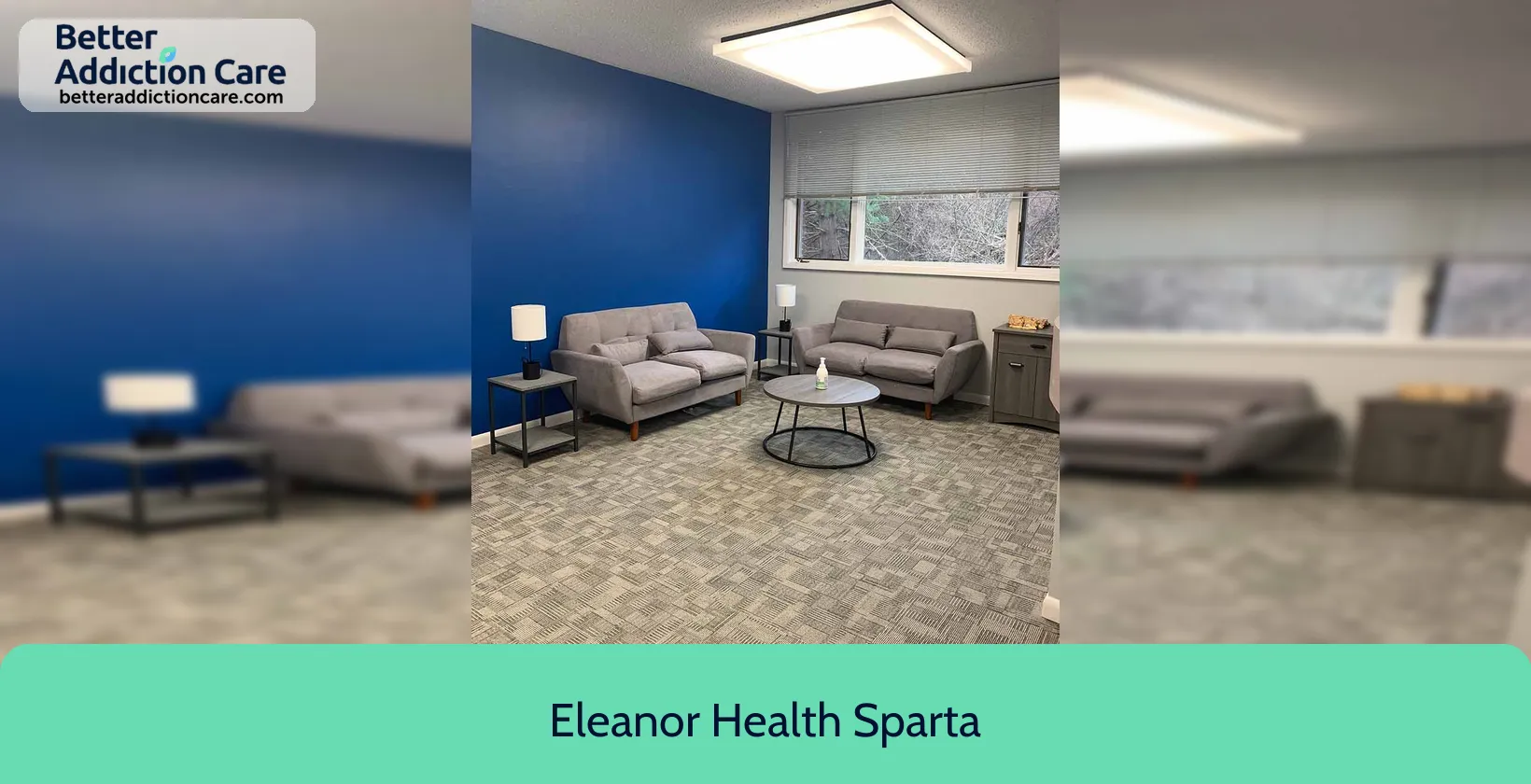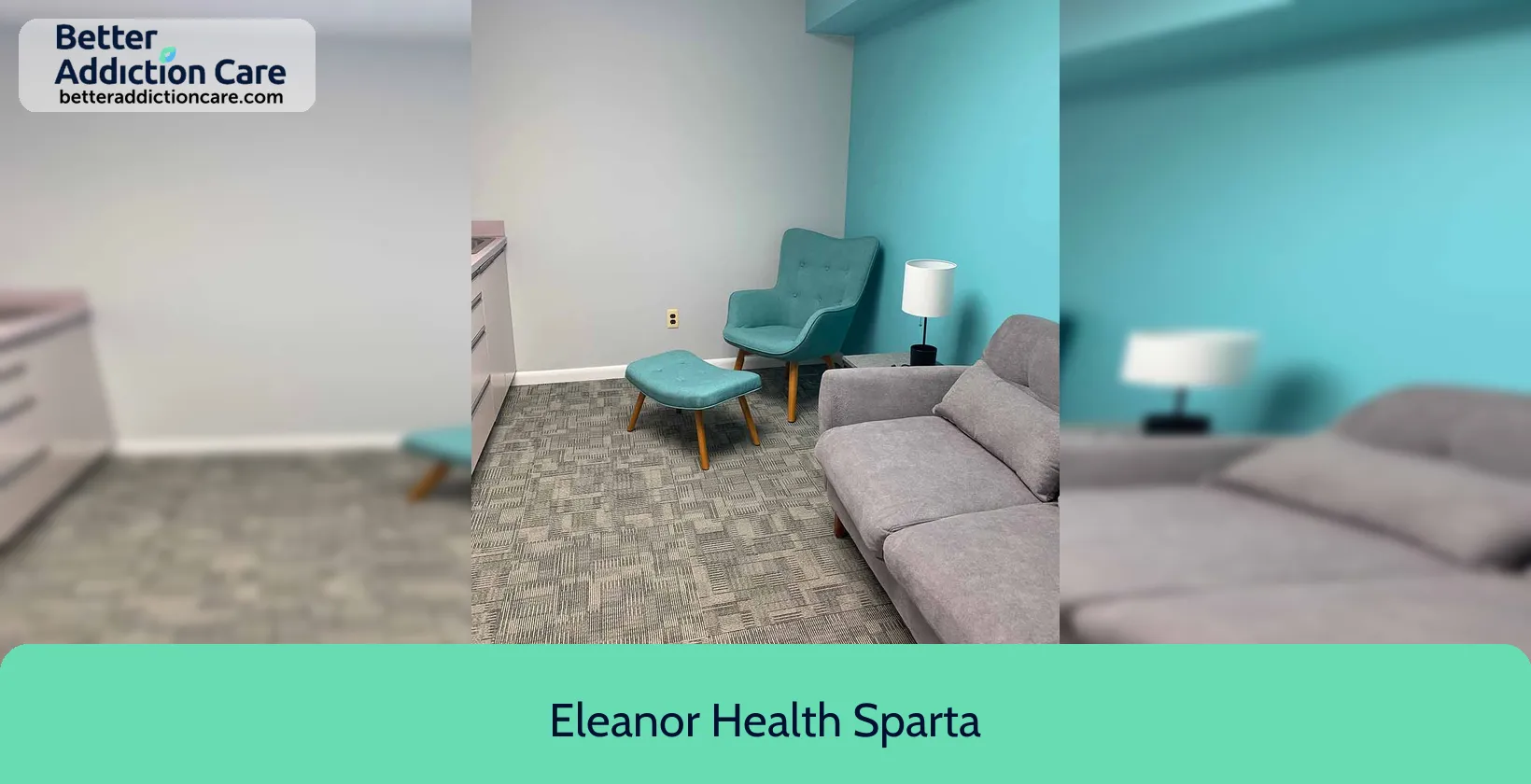Eleanor Health Sparta
Overview
Eleanor Health Sparta is a mental health treatment center for people seeking treatment near Sussex County. As part of their treatment modalities for recovery, Eleanor Health Sparta provides couples/family therapy, group counseling, and cognitive behavioral therapy during treatment. Eleanor Health Sparta is located in Sparta, New Jersey, accepting cash or self-payment for treatment.
Eleanor Health Sparta at a Glance
Payment Options
- Cash or self-payment
- Medicaid
- Medicare
- Private health insurance
- Sliding fee scale (fee is based on income and other factors)
Assessments
- Screening for tobacco use
- Comprehensive mental health assessment
- Comprehensive substance use assessment
Age Groups
- Young adults
- Adults
- Seniors
Ancillary Services
- Case management service
- Diet and exercise counseling
- Family psychoeducation
Highlights About Eleanor Health Sparta
6.68/10
With an overall rating of 6.68/10, this facility has following balanced range of services. Alcohol Rehabilitation: 8.00/10, Drug Rehab and Detox: 6.00/10, Insurance and Payments: 6.00/10, Treatment Options: 6.73/10.-
Alcohol Rehabilitation 8.00
-
Treatment Options 6.73
-
Drug Rehab and Detox 6.00
-
Insurance and Payments 6.00
Treatment At Eleanor Health Sparta
Treatment Conditions
- Mental health treatment
- Alcoholism
- Substance use treatment
- Co-occurring Disorders
Care Levels
- Outpatient
Treatment Modalities
- Couples/family therapy
- Group counseling
- Cognitive behavioral therapy
- Dialectical behavior therapy
- Integrated Mental and Substance Use Disorder treatment
Get Help Now
Common Questions About Eleanor Health Sparta
Contact Information
Other Facilities in Sparta

7.20
DISCLAIMER: The facility name, logo and brand are the property and registered trademarks of Garden State Treatment Center, and are being used for identification and informational purposes only. Use of these names, logos and brands shall not imply endorsement. BetterAddictionCare.com is not affiliated with or sponsored by Garden State Treatment Center.

